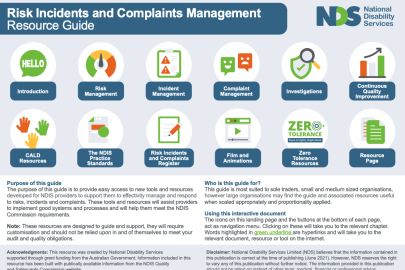The Importance of NDIS Accessibility
In Australia, the National Disability Insurance Scheme (NDIS) plays a crucial role in providing support and services to individuals with disabilities. Ensuring accessibility within the NDIS framework is not just a matter of compliance; it’s about upholding the fundamental principles of inclusivity and equity.
Accessibility goes beyond physical barriers; it encompasses digital, social, and economic aspects as well. A truly accessible NDIS ensures that people with disabilities have equal opportunities to participate fully in society, access services tailored to their needs, and exercise their rights as citizens.
Challenges in NDIS Accessibility
Despite the NDIS’s overarching goal of inclusivity, several challenges persist in ensuring accessibility for all participants. One significant hurdle is the digital divide, where individuals with disabilities may face barriers in accessing online platforms or digital resources related to the NDIS.
Furthermore, the complexity of the NDIS application process and bureaucracy can pose challenges for individuals with cognitive or intellectual disabilities. Lack of adequate support services or accommodations can further exacerbate these barriers, leading to feelings of exclusion and frustration among participants.
Addressing Accessibility Gaps
Recognizing the importance of addressing accessibility gaps within the NDIS, stakeholders have been actively working to implement strategies aimed at improving inclusivity and equitable access.

1. Digital Accessibility Initiatives
Efforts to enhance digital accessibility within the NDIS framework include the development of accessible websites, applications, and online resources. This involves adhering to international accessibility standards such as the Web Content Accessibility Guidelines (WCAG) to ensure that digital platforms are usable by individuals with various disabilities.
Moreover, providing alternative communication channels, such as telephone hotlines or in-person assistance, can help bridge the digital divide for those who face challenges with online access.
2. Tailored Support Services
Recognizing the diverse needs of NDIS participants, there has been a push for the provision of tailored support services aimed at assisting individuals with disabilities throughout the application process and beyond. This includes the availability of accessible information resources, easy-to-understand guides, and assistance from trained support workers who understand the unique needs of each participant.
By offering personalized support services, the NDIS can empower individuals with disabilities to navigate the system more effectively and access the services and supports they require to lead fulfilling lives.
The Impact of NDIS Accessibility
Enhancing accessibility within the NDIS framework has far-reaching implications for individuals with disabilities, their families, and the broader community.
1. Empowerment and Independence
Improved accessibility empowers individuals with disabilities to exercise greater control over their lives and make informed decisions about their care and support needs. By removing barriers to access, the NDIS promotes independence and self-determination, enabling participants to live more autonomously within their communities.
2. Social Inclusion and Participation
Access to NDIS services and supports facilitates greater social inclusion and participation for individuals with disabilities. By providing opportunities for engagement in community activities, employment, education, and recreation, the NDIS fosters a more inclusive society where everyone has the chance to contribute and thrive.

3. Economic Empowerment
Accessibility within the NDIS plays a vital role in promoting economic empowerment for individuals with disabilities. By accessing supports that facilitate employment, skill development, and entrepreneurship, participants can enhance their economic independence and contribute meaningfully to the workforce and economy.
Conclusion
Inclusion matters, and ensuring accessibility within the NDIS is paramount to upholding the principles of equity, dignity, and respect for individuals with disabilities. By addressing accessibility gaps and implementing strategies to enhance inclusivity, we can create a society where everyone, regardless of ability, has the opportunity to participate fully and lead fulfilling lives. Together, let us continue to champion accessibility within the NDIS and build a more inclusive future for all.




